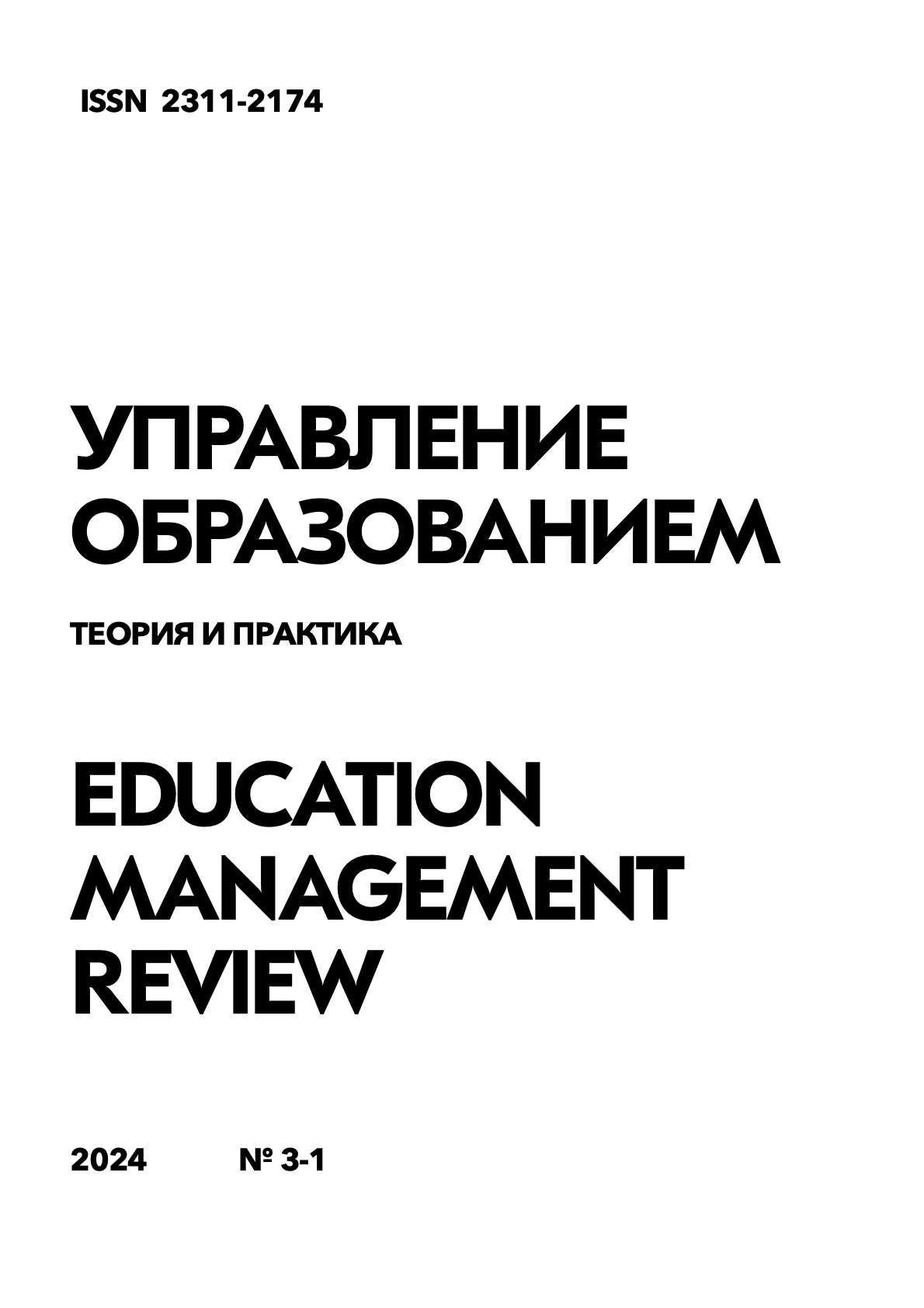The application of the project method in English language teaching within the framework of a professionally oriented approach
Keywords:
project method, professionally oriented training, English, communication skills, motivation, competenciesAbstract
This article is devoted to the study of the application of the project method in English language teaching within the framework of a professionally oriented approach. The relevance of the topic is due to the need to find effective methods of teaching a foreign language that contribute to the formation of not only language skills, but also professional competencies. The purpose of the work is to identify the advantages and features of using the project methodology in the context of professionally oriented English language teaching. Research materials and methods include the analysis of scientific literature on the problem, the study of practical experience in using the project method in teaching English, as well as conducting a pedagogical experiment. 56 students of the 2-3 courses of the Faculty of Economics took part in the experiment, divided into experimental (n= 28) and control (n=28) groups. In the experimental group, training was conducted using the project method, while in the control group traditional methods were used. To assess the effectiveness of the applied methods, tests, surveys, and analysis of students' project work were used. The results of the study showed that the application of the project method within the framework of a professionally oriented approach helps to increase students' motivation to learn English, develop their communication and research skills. In the experimental group, the average score on the final test was 84.6, which is 14.2% higher than in the control group (74.1 points). A qualitative analysis of the project work revealed a deeper understanding of professional terminology by students and the ability to apply it in context. The survey showed that 92% of the students in the experimental group positively assessed the experience of working on projects and noted its benefits for future professional activities. Thus, the project method is an effective tool for professionally oriented English language teaching, contributing to the formation of students not only language skills, but also key competencies that are in demand in a modern professional environment. The introduction of project methodology into the educational process requires careful preparation and methodological support from the teacher, but at the same time opens up wide opportunities for creative and research activities of students.
References
Антонова Н.В., Шмелева Ж.Н. Маркетинг: образовательный метод. пособие / Красноярск. государственный аграрный ун-т. Красноярск. 2018. 112 с.
Божович Д.Е. Преподавателю о языковой компетентности учащихся. М.: Аспект Пресс, 2011. 228 с.
Демиденко Т.Г., Чистякова Н.А. Реализация интерактивного компонента в процессе практикоориентированного преподавания гуманитарных дисциплин // Управление образованием: теория и практика. 2023. № 7(65). С. 32-38. DOI 10.25726/z2237-5269-6534-k. EDN MCHYVV.
Данейкин Ю.В. Проектный подход к внедрению индивидуальной образовательной траектории в современном ВУЗе // Высшее образование в России. 2020. № 8-9. С. 104-116.
Домбровская И.В. Проектная деятельность в практике обучения профессиональному английскому языку: возможности и ограничения // Вестник ВГУ. Серия: Лингвистика и межкультурная коммуникация. 2017. № 3. С. 132136.
Дорошенко С.И. Метод проектов в зарубежной и отечественной педагогике 1920-1930-х годов // Ученые записки ЗабГУ. Серия: Педаго-гическиенауки. 2018. № 5. С. 6-15.
Дьюи Дж., Дьюи Э. Школы будущего / Берлин: Гос. Издательство РСФСР, 2012. 178 с.
Жидяева Ю.В. Видеопроект по иностранному языку как технология организации самостоятельной работы обучающихся в неязыковом вузе // Педагогика. Вопросы теории и практики. 2022. № 5. С. 481-485.
Заболотских Л. В., Гончаренко Е.С. Опыт реализации интерактивных технологий в обучении иностранным языкам в неязыковом вузе // Вестник Московского государственного лингвистического университета. Образование и педагогические науки. 2022. № 3 (844). С. 46-52.
Зимняя И.А. Ключевые компетенции – новая парадигма результата образования // Высшее образование сегодня. 2003. № 5. С. 34-42.
Иванова Н.В., Малышева А.В. Формирование профессионально-коммуникативной компетенции будущих экономистов в процессе изучения делового английского языка // Вестник Томского государственного педагогического университета. 2014. № 6 (147). С. 91-95.
Кузнецова И.А. Метод проектов как средство развития творческого потенциала студентов при обучении иностранному языку // Вестник Кемеровского государственного университета. 2015. № 2-3 (62). С. 52-54
Лазарева О.А. Проектная методика обучения английскому языку студентов неязыкового вуза // Вестник Бурятского государственного университета. Образование. Личность. Общество. – 2009. – № 15. С. 121-128.
Матухин Д.Л. Профессионально-ориентированное обучение иностранному языку студентов нелингвистических специальностей // Язык и культура. 2011. № 2 (14). С. 121-129.
Матюшев В. В., Антонова Н. В. Проектная работа как средство развития творческих способностей студентов Красноярского ГАУ // Молодой красноярский специалист XXI века на рынке труда: материалы региона. научно-практическая конф. / Красноярский государственный аграрный университет. Красноярск. 2010. С.62-65.
Полат Е.С. Метод проектов на уроках иностранного языка // Иностранные языки в школе. 2000. № 2. С. 3-10.
Asfihana R. Digital project-based learning for teaching English for lslamic studies: Learning from practice // Asian ESP Journal. 2021. No 17 (7.2). pp. 25-41.
Hutchinson T., Waters A. English for Specific Purposes: A learner-centered approach / Cambridge: Cambridge University Press, 1987. 183 p.




